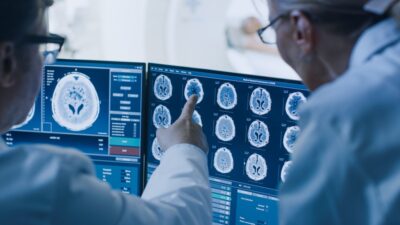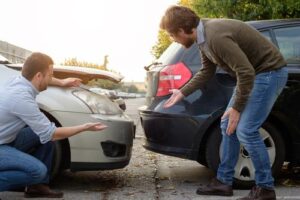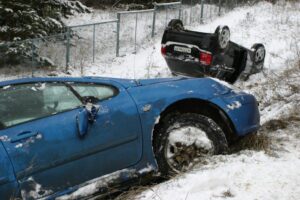
After a car accident, medical professionals often utilize both MRIs and CT scans to evaluate potential injuries. When determining if these tests are worth doing, your physician will take into account several factors, including the nature of the injuries sustained, the associated risks and advantages of each procedure, and your unique medical background.
Since car accidents can result in various injuries, seeking medical evaluation after a car accident is crucial. Deciding whether to get an MRI and CT scan can be confusing for most but with the help of the Atlanta car accident lawyers at John Foy & Associates you’ll be able to make an informed decision on if a MRI or a CT scan is necessary after an auto wreck.
Utilizing MRI and CT Scan Results in Car Accident Claims
MRI and CT scan results can be valuable evidence in car accident claims or lawsuits. These diagnostic images provide objective documentation of injuries, helping establish the extent and severity of damages. Consulting with an experienced Atlanta personal injury attorney who specializes in car accidents can help ensure the proper testing and utilization of this evidence.
Understanding How Each Works Together
Magnetic resonance imaging (MRI) and computed tomography (CT) scans are diagnostic imaging techniques that help visualize the internal structures of the body. An MRI uses strong magnetic fields and radio waves, while a CT scan involves a series of X-ray images taken from different angles. Both may be needed after a car wreck to rule out catastrophic injuries.
Get the strong arm
How Do I Know Whether to Get a CT Scan or an MRI?
Your decision of whether to get a CT scan or an MRI should be made in consultation with your healthcare provider. Their expertise will help you to choose the most suitable testing method for your needs. Typically, the following factors are evaluated:
- Type of Injury
- Urgency
- Medical considerations
- Cost
- Diagnostic precision
When to Consider an MRI After a Car Accident
If you experience severe pain, neurological symptoms, or suspected damage to soft tissues, an MRI may be recommended. An MRI is particularly effective in detecting injuries such as spinal cord damage, brain trauma, or ligament tears. It provides detailed images of soft tissues, making it suitable for assessing injuries that may not be visible through other diagnostic tests.
When to Consider a CT Scan After a Car Accident
A CT scan is often preferred for identifying fractures, internal bleeding, or injuries to organs such as the liver, spleen, or kidneys. It is also useful in evaluating head injuries, as it can detect skull fractures and brain bleeding. If there is a need for quick assessment or if you have metal implants that prevent an MRI, a CT scan may be recommended.
What Are the Risks and Side Effects of MRI and CT Scans?
Both MRI and CT scans are generally considered safe; however, they do come with some risks and potential side effects. It is important to discuss any concerns or allergies with the healthcare provider beforehand.
MRI scans may not be suitable for individuals with certain medical devices or metal implants. CT scans involve exposure to ionizing radiation, although the risk is minimal. Discomfort and claustrophobia are potential side effects of both scans, but healthcare professionals can provide strategies to alleviate these concerns.
What Common Car Accident Injuries Can Be Assessed Using an MRI and CT Scan?
Both MRIs and CT scans are valuable tools for assessing various injuries that may occur after a car accident. Some common injuries that can be evaluated using these imaging techniques include:
Traumatic Brain Injuries (TBI)
Both MRIs and CT scans can detect brain injuries such as contusions, hemorrhages, and skull fractures. CT scans are particularly effective in identifying acute bleeding, while MRIs provide detailed images of soft tissues in the brain, making them useful for detecting subtle injuries.
Spinal Cord Injuries
MRIs are excellent for visualizing the spinal cord and surrounding structures. They can identify spinal cord compression, herniated discs, ligamentous injuries, and other abnormalities. CT scans are primarily used to assess fractures or dislocations of the spinal vertebrae.
Fractures
CT scans are typically the preferred imaging modality for evaluating fractures. They can provide detailed images of bones, helping identify fractures, dislocations, or other skeletal injuries, including those in the skull, spine, ribs, pelvis, and extremities.
Soft Tissue Injuries
MRIs excel at assessing soft tissue injuries, such as tears, sprains, or strains in muscles, tendons, and ligaments. They can identify injuries in the neck (whiplash), shoulders, knees, and other joints, providing detailed information about the extent of damage.
Internal Organ Injuries
CT scans are commonly used to evaluate injuries to internal organs, such as the liver, spleen, kidneys, or lungs. They can detect organ lacerations, contusions, or bleeding, which may not be immediately noticeable.
Abdominal Injuries
CT scans are particularly useful in assessing the abdomen for injuries resulting from the impact of a car accident. They can identify injuries to the liver, spleen, kidneys, intestines, or other abdominal organs.
Chest Injuries
CT scans can help detect chest injuries, including rib fractures, lung contusions, or pneumothorax (collapsed lung). They can provide detailed images of the chest cavity, helping assess the extent of internal damage.
Ultimately, doctors will determine if this combination of tests is most appropriate for accurately diagnosing and evaluating the injuries sustained in a car accident.
Are There Any Alternatives to MRI and CT Scans?
There are alternative diagnostic tests that can provide similar information in certain cases. Ultrasound and X-rays are commonly used for specific types of injuries, such as fractures or evaluating the abdomen. The choice of alternative tests depends on the nature of the suspected injuries and the recommendations of the healthcare provider.
How to Prepare for an MRI and CT Scan Appointment Post-Accident
To prepare for your MRI and CT scan following your accident, follow any specific instructions provided by the healthcare provider. These might include fasting, avoiding certain medications, or wearing loose-fitting clothing.
Inform the healthcare provider about any allergies, metal implants, or claustrophobia concerns. It is also essential to ask questions about the procedure to alleviate any anxiety or uncertainty.
Is a CT Scan and MRI Required After an Accident?
Determining whether to get an MRI or CT scan after a car accident requires careful consideration based on individual circumstances. Both imaging techniques serve different purposes and can provide crucial insights into injuries sustained.
Consulting with healthcare professionals and your legal team, such as John Foy & Associates personal injury attorneys, can help assess the need for imaging. Contact us today to accurately follow diagnosis and treatment plans that could maximize your settlement following a car accident.
(404) 400-4000 or complete a Free Case Evaluation form





